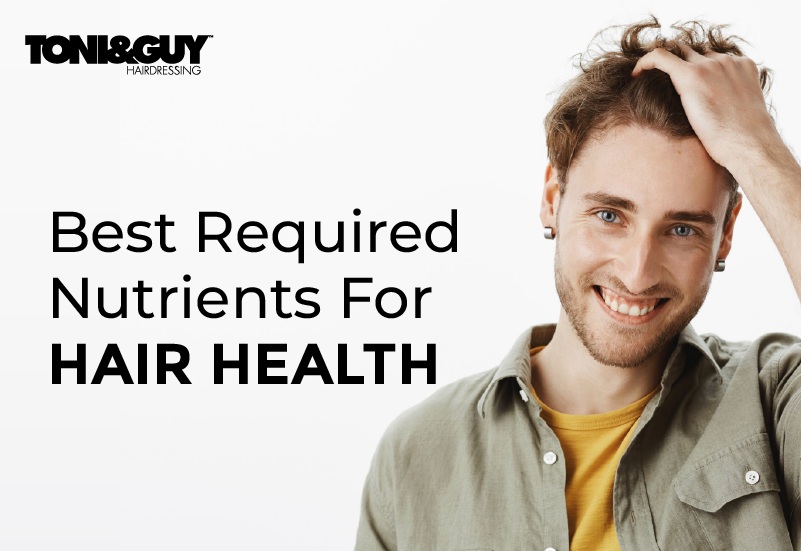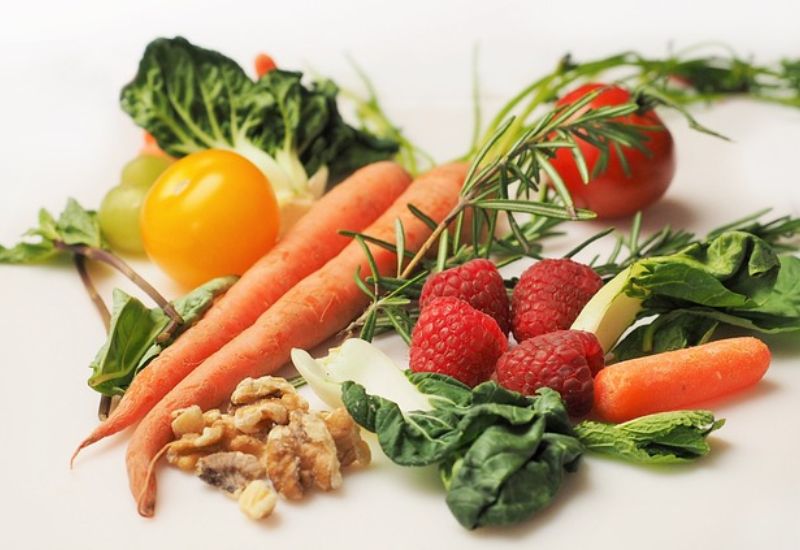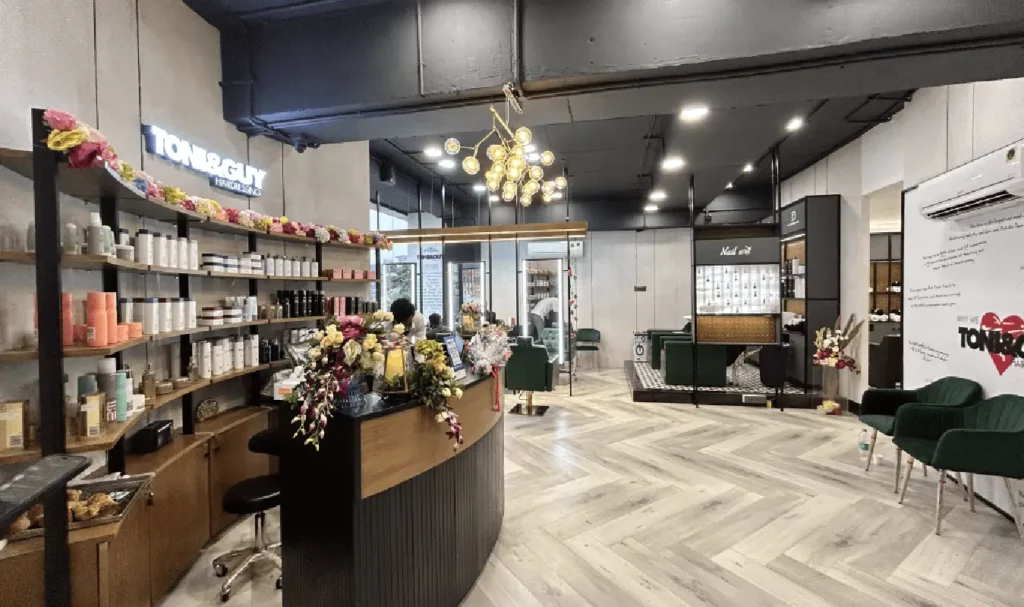
Introduction
Hair health is a reflection of our overall well-being. It is influenced by various factors, including genetics, environmental exposure, and most importantly, Nutrients for hair health. A balanced diet rich in specific nutrients can promote hair growth, prevent hair loss, and enhance hair quality.
Understanding the role of these nutrients and incorporating them into your diet can lead to healthier, more vibrant hair.
Maintaining healthy hair is a reflection of overall well-being and a balanced diet. Among the various factors contributing to hair health, nutrition plays a pivotal role.
Essential nutrients, including proteins, vitamins, and minerals, are crucial for hair growth, strength, and vitality. This article, supported by scientific research, delves into the significance of these nutrients and their impact on hair health.

1. Protein – Nutrients for hair health
Hair is primarily composed of a protein called keratin, which forms the structural foundation of each strand. Adequate protein intake is vital for maintaining the strength and integrity of hair.
A study published in the Journal of Investigative Dermatology highlighted the adverse effects of protein malnutrition, including hair thinning and loss.
Incorporating protein-rich foods such as lean meats, eggs, and legumes into your diet can support keratin production and promote healthy hair growth.
2. Biotin (Vitamin B7)
Biotin, also known as vitamin B7, is crucial in keratin production, enhancing hair growth and strength. Research in the Journal of Clinical and Aesthetic Dermatology demonstrated that biotin supplementation significantly improved hair growth among individuals with thinning hair. Biotin can be found in foods like eggs, nuts, and whole grains, making it an accessible nutrient for hair health.
3. Iron
Iron is essential for hair growth as it aids in the transportation of oxygen to hair follicles. A study in the Journal of the American Academy of Dermatology found a link between iron deficiency and hair loss, particularly in women.
Ensuring adequate iron intake through dietary sources such as red meat, spinach, and lentils or supplements can promote hair growth and prevent hair loss.
4. Vitamin C
Vitamin C is a powerful antioxidant that protects hair from oxidative stress caused by free radicals. It also plays a crucial role in collagen production and enhances iron absorption.
A study in the Journal of Trichology emphasised the importance of vitamin C in preventing hair loss and maintaining healthy hair. Citrus fruits, berries, and bell peppers are excellent sources of vitamin C.
5. Omega-3 Fatty Acids
Omega-3 fatty acids are known for their anti-inflammatory properties and role in nourishing hair follicles. A study published in the Journal of Cosmetic Dermatology found that supplements containing omega-3 and omega-6 fatty acids improved hair density and reduced hair loss.
Incorporating fatty fish, flaxseeds, and walnuts into your diet can provide these essential fatty acids, promoting healthy hair growth.
6. Zinc
Zinc is involved in hair tissue growth and repair and helps maintain the oil glands around hair follicles. A study in the Annals of Dermatology showed that zinc supplementation improved hair growth in individuals with alopecia. Zinc can be found in oysters, beef, and pumpkin seeds, making it an essential nutrient for hair health.
7. Vitamin D

Vitamin D is linked to hair follicle cycling and growth. Low vitamin D levels have been associated with hair loss and alopecia areata. Research in the Journal of Steroid Biochemistry and Molecular Biology suggested that vitamin D receptors are crucial for hair cycle regulation.
Sun exposure and dietary sources like fatty fish and fortified foods can help maintain adequate vitamin D levels.
8. Vitamin E
Vitamin E is an antioxidant that helps prevent oxidative stress in the scalp, promoting hair growth. A Tropical Life Sciences Research journal study found that vitamin E supplementation increased hair count in individuals with hair loss. Avocados, nuts, and seeds are rich in vitamin E, providing a natural way to support hair health.
Toni&Guy Salons

Toni&Guy is a renowned international hairdressing brand known for its high-quality salon services. In Tamil Nadu, Toni&Guy has established a strong presence with multiple branches across various cities, including Chennai, Coimbatore, Madurai, and Trichy.
Their salons offer a wide range of services, including haircuts, styling, colouring, and treatments, catering to both men and women.
Toni&Guy salons are known for their professional and skilled stylists who are trained to provide personalised services to meet the unique needs of each customer.
The brand is committed to customer satisfaction, ensuring a luxurious and comfortable experience for all its clients. With their modern and stylish interiors, Toni&Guy salons provide a relaxing environment where customers can enjoy top-notch hair care services.
Their dedication to excellence and customer service has made Toni&Guy a preferred choice for hairdressing in Tamil Nadu and beyond.
Bottom Line
A protein-rich diet, vitamins, and minerals are essential for maintaining healthy hair. Incorporating biotin, iron, vitamin C, omega-3 fatty acids, zinc, vitamin D, and vitamin E can promote hair growth, reduce hair loss, and improve hair quality.
Regularly consuming these nutrients through a balanced diet or supplements, if necessary, can lead to stronger, healthier, and more vibrant hair. It’s always advisable to consult with a healthcare professional before starting any supplementation regimen.
FAQs
- What are the essential nutrients for healthy hair?
The essential nutrients for healthy hair include protein, biotin (vitamin B7), iron, vitamin C, omega-3 fatty acids, zinc, vitamin D, and vitamin E.
- How does protein benefit hair health?
Protein, specifically keratin, is the primary building block of hair. Adequate protein intake is vital for maintaining the strength and structure of hair strands, promoting healthy hair growth.
- Why is biotin important for hair?
Biotin (vitamin B7) is crucial for the production of keratin, which helps improve hair growth and strength. It is often recommended for individuals experiencing hair thinning or loss.
- Can iron deficiency affect hair health?
Yes, iron deficiency is a common cause of hair loss, especially in women. Iron helps in transporting oxygen to hair follicles, and its deficiency can lead to reduced hair growth and increased hair shedding.
- What role does vitamin C play in hair health?
Vitamin C is an antioxidant that protects hair from oxidative stress. It also aids in collagen production and enhances iron absorption, both of which are vital for maintaining healthy hair.
- How do omega-3 fatty acids benefit hair?
Omega-3 fatty acids nourish hair follicles and promote healthy hair growth. They also possess anti-inflammatory properties, which can help reduce hair loss caused by inflammation.
- Why is zinc important for hair growth?
Zinc plays a crucial role in hair tissue growth and repair. It also helps maintain the oil glands around hair follicles, ensuring a healthy scalp environment for hair growth.
- Can vitamin D deficiency lead to hair loss?
Yes, low levels of vitamin D are associated with hair loss and alopecia areata. Vitamin D is important for hair follicle cycling and growth, and its deficiency can disrupt the hair growth cycle.
For personalised advice on nutrition for hair health, it’s recommended to consult with a healthcare professional or a registered dietitian.


